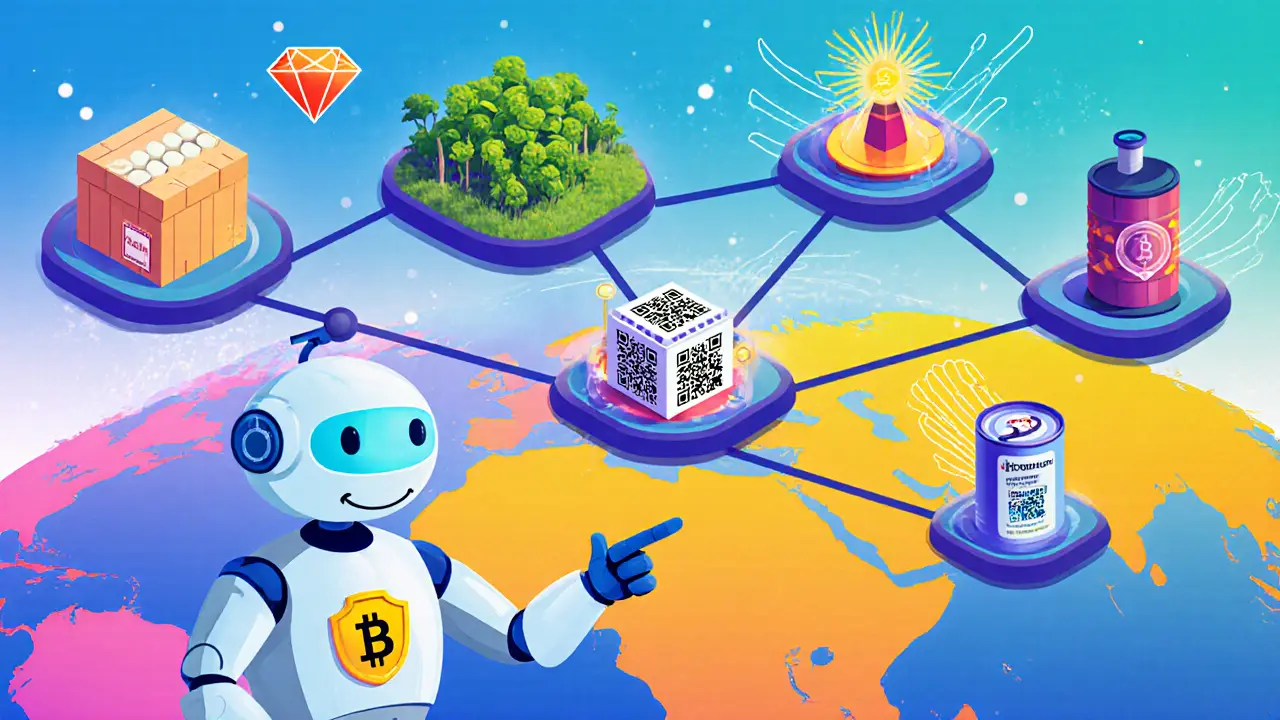When working with traceability blockchain, a blockchain system built to record, verify, and share the origin and movement of assets across a distributed network. Also known as blockchain traceability, it guarantees data integrity and real‑time visibility for every stakeholder.
One of the biggest reasons businesses adopt this tech is to achieve supply chain transparency, the ability to see exactly where a product came from, how it was processed, and who handled it at each step. With a transparent ledger, manufacturers can prove authenticity, regulators can verify compliance, and consumers can trust the claims on the label. In practice, a coffee farmer can upload harvest data, a logistics provider adds shipping timestamps, and a retailer pulls the full history with a single scan.
To make those records useful, many projects rely on tokenization, the process of turning physical or digital assets into blockchain‑based tokens that can be tracked, transferred, or fractionalized. Tokenizing a batch of raw materials lets you assign a unique ID, attach ownership rights, and trigger automated actions when certain conditions are met. This is why you’ll see tokenized pallets of goods moving on public ledgers, enabling faster customs clearance and reducing paperwork.
Under the hood, smart contracts, self‑executing code that runs when predefined conditions are satisfied are the glue that ties the whole system together. A smart contract can automatically release payment when a sensor confirms delivery temperature stayed within range, or it can lock a token until a certification authority verifies compliance. Because the contract lives on the blockchain, nobody can tamper with the rules after the fact.
But no single blockchain can handle every industry’s needs alone. That’s where blockchain interoperability, the ability for different blockchain networks to communicate and share data securely comes into play. Interoperable solutions let a traceability ledger on a permissioned platform talk to a public token network, giving companies the best of both worlds: privacy for sensitive data and openness for broader market access.
Here’s why traceability blockchain matters for modern businesses: it reduces fraud, cuts verification costs, and creates new revenue streams through data monetization. Whether you’re a farmer, a logistics firm, or a retailer, the technology lets you build trust without relying on third‑party certifiers. And because the data is immutable, audits become faster and cheaper.
Below you’ll find a curated set of articles that dive deeper into each of these pieces—real‑world DEX reviews, regulatory guides, token vesting strategies, and more. Browse the collection to see how traceability blockchain interacts with DeFi tools, how fee‑estimation APIs keep your costs predictable, and what validator networks mean for consensus security. Let’s explore the ecosystem together.

Explore real-world blockchain supply chain use cases-from vaccine cold‑chain monitoring to diamond provenance-plus benefits, implementation steps, and future trends.